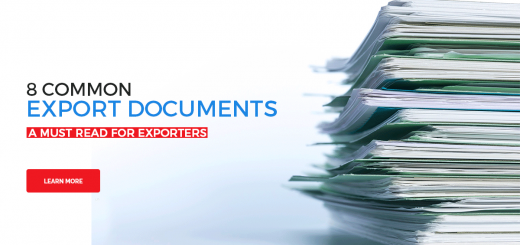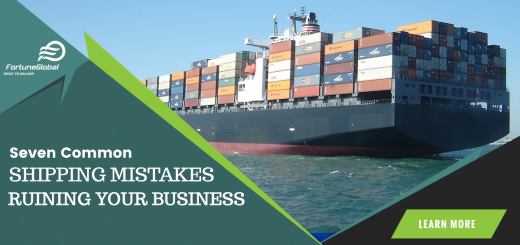2019 in Retrospect and Key Expectations for 2020

The Nigerian logistics industry in 2019, like the years before it was characterized by a growing demand for excellence, stiff competition, huge growth opportunities, costly infrastructural challenges and most significantly, several regulatory changes. These changes have evoked a mixture of commitment to compliance, global best practice, and disruption to trade facilitation among diverse industry stakeholders. In view of this, our focus is a recap of some major regulations that shaped the overall industry operations in 2019 and key regulatory expectations for 2020.
A Synopsis of Some Major Regulatory Developments in 2019
- Automation of Duty Exemption: The Infrastructure Concession Regulatory Commission (ICRC) has given the Federal Ministry of Finance the go-ahead to develop an automated Customs portal to be used in the processing and issuing Import Duties Exemption Certificate (IDEC).
- Customs Scanning and e-Tracking System: the Nigeria Customs announced its intention to establish an e-cargo tracking system in 2019 for the facilitation of the clearing procedure and efficiency in the clearing process.
- The Nigerian Customs “Strike Force”: On April 25th, the Nigerian Customs issued a circular, authorizing the Comptroller General’s “Strike Force” to conduct 100% re-examination of suspicious shipments right inside the ports and even confiscate where necessary. Many stakeholders agreed that while the aim is to enforce strict compliance with cargo regulation, it was also viewed as a major disruption to trade facilitation and efficient service delivery.
- Notification of Changes in HS Code and Import Tariffs in Nigeria: The Nigerian Customs Service announced the Federal Government’s decision to implement additional fiscal policy measures, with effect from July 1, 2019, leading to significant adjustment on HS Codes and corresponding tariffs.
- The Nigeria/Benin Single Window for Cargo Declaration: The aim is to guard against smuggling and under-declaration across both borders and increase accruable government revenue. That is, import and export-bound goods that have been declared in both countries can be seen by either Customs authorities. This has taken effect but not fully implemented yet.
- The Integration of NAFDAC e-Permit with e-Form M and The Nigerian Trade Portal: This meant the rejection of manual permits with effect from September 9th, 2019 and implies that: NAFDAC licenses, permits, and certificates must now be obtained electronically; only digital forms issued by NAFDAC will be valid for the importation of NAFDAC regulated goods and applicants must now input the approval reference code stated on the NAFDAC e-licenses for Form-M, Pre-Arrival Assessment Report (PAAR) processing; Customs Clearance and other and other trade-related transactions.
- Computation of Import Duty: Nigerian Customs now uses N 326 to a dollar, as against N305 for duty computation. This has increased the cost of imported goods by about 8%.
- International Maritime Organization (IMO) 2020 Regulation on Fuel Emission Standard: This new regulation has a global implication, meaning that: Ocean carriers are expected to comply with the use of low Sulphur fuels (0.5%), as against the previous 3.5 with effect from December 1, 2019. This will translate to higher transitional cost for ocean carriers, leading to higher spot rates and other related charges to importers/exporters.
Expectations for 2020
While the full implementation of the foregoing regulations is expected to continue in 2020, the following are expected to come into full effect and improve industry performance, compliance level, and general outlook:
Industry-Wide Advocacy for and Commitment to Compliance: Though the industry has made significant progress – especially in some of the most recent regulations in a bid to enforce compliance, a lot more commitment is expected from all stakeholders.
Decongestion of Apapa and Tincan ports: The Nigeria Shippers’ Council is expected to implement the development of Some truck transit parks around the Apapa and Tincan port, as well as other strategic locations area to decongest the port area and reduce the traffic gridlock around Apapa/Oshodi expressway.
Improvement of Other Critical Logistics Infrastructure: The Federal Government is expected to commit towards the upgrading of the airport cargo terminals, construction of standard gauge railways from the sea to strategic Inland Container Depots in the North, West and Eastern regions, as well as the construction of Lekki deep seaport. The upgrading of the Warri and Port-Harcourt seaports will go a long way in decongesting Lagos Ports and ultimately increase our ranking in both the Global Logistics Index and Ease of Doing Business Index.
Effective Communication of INCOTERMS 2020 and Other Regulatory Developments to Customers: Incoterms 2020 will take effect from January 1, 2020. Forwarders are expected to communicate this development to customers; the changes or differences with Incoterms 2010; where it affects your current contracts and changes required in the area of delivery, freight insurance, letter of credit, risks and security-related obligations. Apart from pricing, service delivery, and related services, keeping customers abreast of significant regulatory changes is a critical value, capable of creating a stronger connection and long-term benefits between industry providers and customers.
This industry is information-driven and leaves no room for ignorance. That is why regulatory agents, Forwarding agents, shippers, and all relevant stakeholders must be abreast of regulatory and other important industry regulations and general expectations to avoid non-compliance or costly errors of commission or omission.



